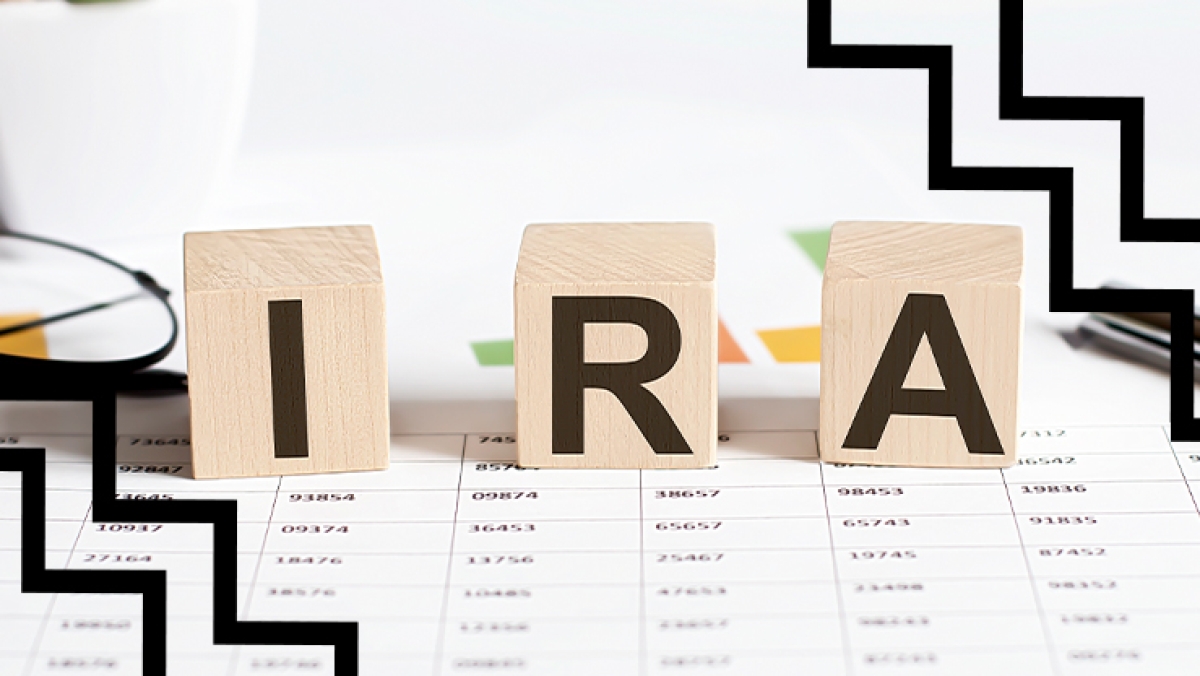An Individual Retirement Account (IRA) is a popular retirement savings option in the United States that offers tax benefits. There are two main types: Traditional and Roth IRAs. With a Traditional IRA, your contributions are tax-deductible, reducing your current tax bill, but you’ll pay taxes when you withdraw the funds in retirement. A Roth IRA, on the other hand, requires after-tax contributions, but your withdrawals during retirement are tax-free.
IRAs allow you to invest in a variety of assets, such as stocks, bonds, and mutual funds, helping your money grow over time. By contributing regularly to an IRA, you can benefit from compound growth, enhancing your wealth for the future. Why should you invest in IRA? It provides an excellent way to secure your financial future, taking advantage of tax benefits and investment flexibility to ensure a comfortable retirement.
Benefits of IRA Investments: How It Can Help Your Retirement
Investing in an IRA is a smart way to secure your financial future and ensure you have enough funds when it’s time to retire. One of the most significant advantages of an IRA is the tax savings it offers. For a Traditional IRA, contributions are tax-deductible, which means you can reduce your taxable income for the year you contribute. This can result in a lower tax bill, providing you with more disposable income. With a Roth IRA, although you don’t get an immediate tax break, your withdrawals during retirement are completely tax-free, which can be a huge advantage in the long run.
Another key benefit is that IRAs give you the opportunity to invest in a variety of assets, such as stocks, bonds, ETFs, and mutual funds. This allows your money to grow at a higher rate compared to keeping it in a regular savings account. Additionally, IRAs have higher contribution limits than other retirement accounts, allowing you to save more.
Here are some additional benefits of investing in an IRA:
- Tax advantages: Either immediate tax deductions (Traditional IRA) or tax-free withdrawals (Roth IRA).
- Investment flexibility: Access to a wide range of investment options, including stocks, bonds, ETFs, and mutual funds.
- Higher contribution limits: The ability to contribute more than other types of retirement accounts.
- Compound interest: Your investments can grow over time, increasing your savings for retirement.
This flexibility, combined with the potential for compound interest, makes investing in an IRA one of the best ways to plan for a secure and prosperous retirement.
Types of IRAs: Which Option is Best for Optimal Growth of Your Savings?
There are several types of IRAs available, each with its own unique set of rules and benefits. The two most common types are Traditional IRAs and Roth IRAs. A Traditional IRA allows you to deduct your contributions from your taxable income, meaning you can lower your current tax bill. The money in the account grows tax-deferred, and you only pay taxes when you withdraw the funds during retirement. This makes it an excellent choice for individuals who expect to be in a lower tax bracket during retirement.
On the other hand, a Roth IRA requires contributions to be made with after-tax dollars, but the withdrawals during retirement are tax-free. This makes it an ideal option for people who expect to be in a higher tax bracket in the future or want to avoid paying taxes on their investment gains. There are also other types of IRAs, like SEP IRAs and SIMPLE IRAs, which are geared towards self-employed individuals and small business owners. Each type of IRA has specific eligibility requirements and contribution limits, so it’s important to understand your options and choose the one that aligns with your financial goals.
Tax Advantages and Benefits of IRAs: How It Can Save You Money
One of the primary reasons why many individuals choose to invest in an IRA is the tax benefits it offers. The main advantage of contributing to a Traditional IRA is the tax deduction you receive for your contributions. For every dollar you contribute to your IRA, you reduce your taxable income for the year. This can result in a lower tax bill, allowing you to keep more of your hard-earned money. However, when you withdraw the money in retirement, you’ll pay taxes on the funds at your ordinary income tax rate.
With a Roth IRA, the situation is different. You contribute after-tax dollars, which means you don’t get a tax break in the year you contribute. But when you withdraw the funds in retirement, both your contributions and any investment gains are tax-free, which can be a huge benefit.
Is It Worth Investing in an IRA Today?
Investing in an IRA is a long-term strategy that can provide significant financial benefits, but the question remains: is it worth starting today? The earlier you begin contributing to an IRA, the more time your money has to grow. Compound interest plays a critical role in increasing the value of your retirement savings over time. Even small contributions made early in your career can add up significantly by the time you retire. The earlier you start, the more opportunity you have to take advantage of tax advantages and investment growth.
Additionally, IRAs offer flexibility in terms of how and where you invest your funds, allowing you to customize your portfolio to fit your risk tolerance and financial goals. If you’re looking for a simple and effective way to save for retirement, an IRA can be a valuable tool. Whether you’re just starting your career or already approaching retirement age, it’s never too late to begin contributing to an IRA. The key is to start as soon as possible, be consistent with your contributions, and stay focused on your long-term financial goals.
Keep an eye for more latest news & updates on Bangkok Tribune!



